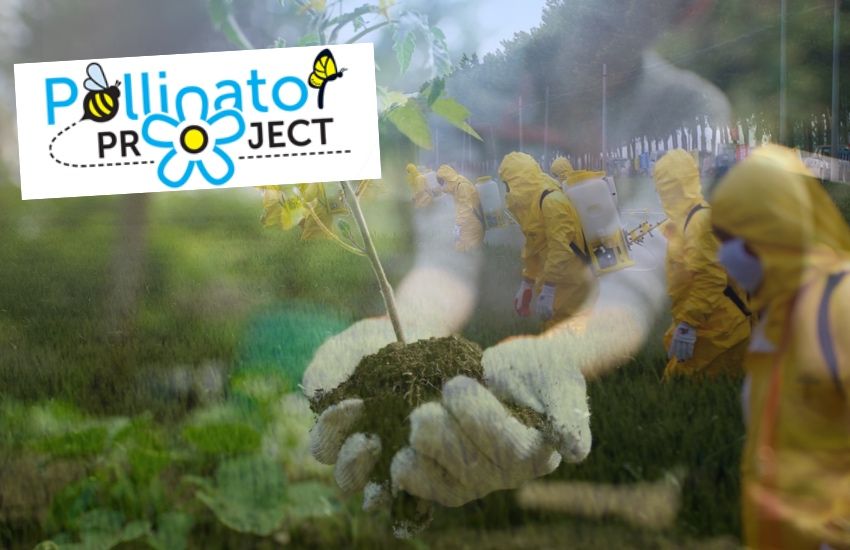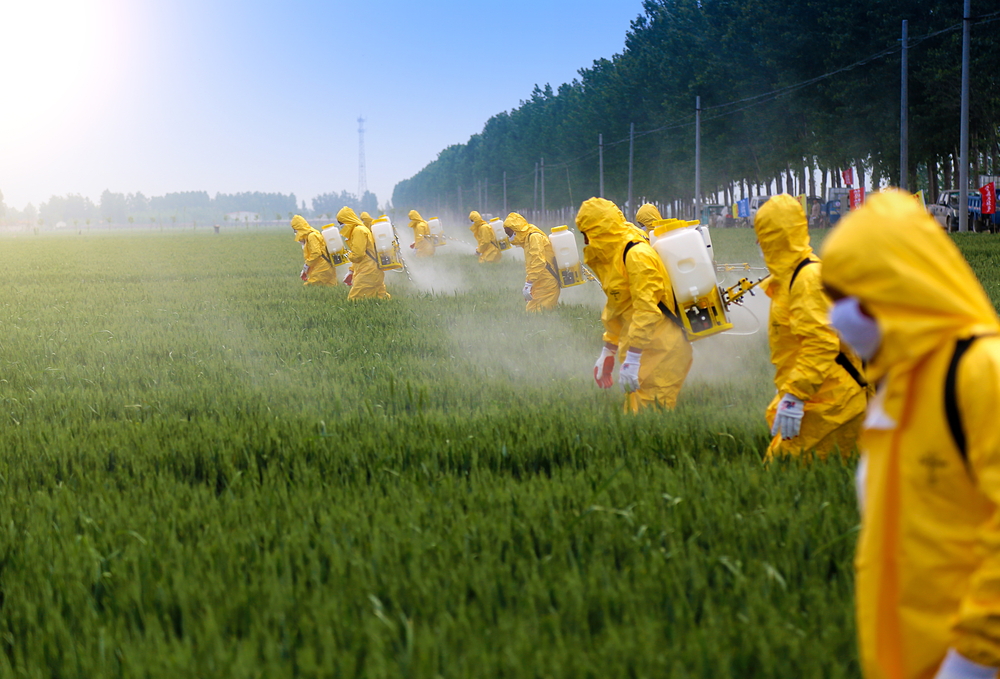


The Pollinator Project, which is in-part funded by the Strategy for Nature fund, has launched a campaign to discourage the use of synthetic pesticides in Guernsey. It says it has already had a good response from the community.
Pesticide Free Guernsey, which launched on Earth Day last week, aims to educate and raise awareness across the community about the environmental impact of bug sprays, rose sprays, ant powders, slug pellets and more.
Louise Gabriel, who works for the Project, said the group has a package of recommendations and learning opportunities for everyone, from “government departments down to school children”.
Local companies are being asked to put pesticide use on their Environment, Social, and Governance agendas. Additionally, the group will be speaking to the States of Guernsey about what products are currently used. Mrs Gabriel said this also allows the Project and the States to learn from each other about alternative methods.
She highlighted a proposed badging system for local gardening companies to accredit their pesticide free position. The group would also allow alternatives, which are currently used by States Works, to be showcased to the industry.
States Works ceased using the herbicide glyphosate in 2021, replacing it partly with acetic acid which is organic.
It's #EarthDay today so we are launching #PesticideFreeGuernsey.
— The Pollinator Project (@pollinatorproj) April 22, 2022
Please ask your friends, family neighbours, gardeners, garden centres, your company to stop using or selling weed killer, bug spray, rose spray, ant powder and slug pellets in their garden, drive or land. pic.twitter.com/OgNQbeiHmn
Pictured: News came of the launch last week on Twitter.
“Garden centres need to make sure they are not selling coated seeds,” said Mrs Gabriel, who claims that these have a wider environmental impact once they are planted in the soil.
The Project is additionally working with the University of Bristol to gather baseline data, tracking insects across locations to determine pesticide prevalence.
Local primary school children are being taught “not to use bug spray or squish creatures” and Mrs Gabriel said that public sites, such as schools and churches, should also be aware of their pesticide practices.
She listed acetic acid, white vinegar, organic sprays, salt and washing up liquid, manual methods, and burners as “cheap and easy” alternatives to synthetic products.

Pictured: Pesticides have been used extensively across the world for decades.
It was noted that “garden centres are open to selling fewer synthetics and offering alternatives to customers” as well as other pesticide free products.
Mrs Gabriel said that whilst much attention is given to the “ubiquitous” herbicide glyphosate, bug sprays can be equally as bad, since they drift when sprayed and can enter birds’ diets.
She also said that the plastic packaging of pesticides should be properly disposed of, and any remaining liquid should never be poured down the drain.
It was also suggested that a method to deal with weeds is to let them grow: “Bees love the weeds - try and let them flower… and it means you can weed less,” said Mrs Gabriel.
Comments
Comments on this story express the views of the commentator only, not Bailiwick Publishing. We are unable to guarantee the accuracy of any of those comments.